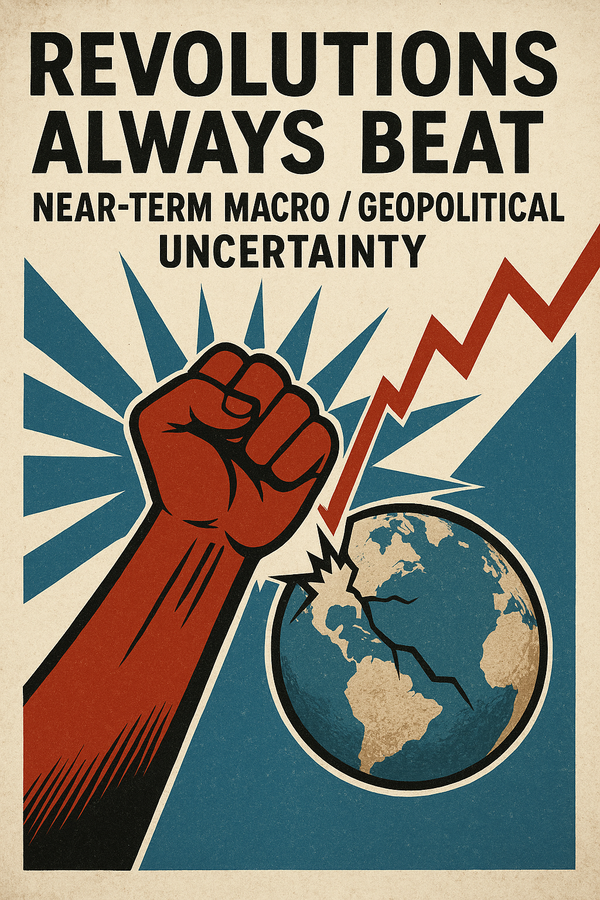The 100 Most Important Tech Stocks on the Planet (With update)
You can get my brand new investment book which includes the best ten tech investments on the planet too, The 100 Most Important Tech Stocks on the Planet, at http://100TechStocks.com.
Innovation. Growth. New markets. Game-changers. Isn’t that what every investor and trader is looking for? And isn’t that what “tech” is?
I know I continue to invest my personal, hard-earned money in tech like Apple AAPL and Google GOOG everyday just as I have been outlining for you readers of my blog for years now. How does an investor find the next Oracle ORCL or Microsoft MSFT, Priceline PCLN or Amazon AMZN? And how do we decide if those stocks themselves are still buy-able?
I analyze hundreds of stocks every year in search of the very best companies to put into my personal portfolio, which mirrors my Marketwatch Revolution Investing portfolio.
Here’s how I’ve broken down Apple for example:
Company: 2. AAPL – Apple, Inc.
Summary: Apple makes computers, mobiles devices, digital music players and all kinds of devices that run/connect with the Internet.
Balance Sheet
Cash and Cash Equivalents: 12 B
Short Term Investments: 16 B
Long term Investments: 48 B
Total Cash: 76 B
Total Debt: –0
Net Cash: 76 B
Outstanding Shares: 927 M
Net Cash / Share: 82
Share Price: 380
Enterprise Value / Share: 298
Total Market Cap: 352 B
Enterprise Value: 276 B
2012 Sales Growth: 22.6%
2012 Earnings Estimate: 32.3
Enterprise Value Multiple: 9.2 Times Forward Earnings
Dividend & Yield: N/A
Building a better tablet experience than the iPad is proving to be much like building a better mousetrap — not so simple. Steve Jobs confidently predicted in October 2010 that a 7-inch competitor to the 10-inch iPad would be “DOA.” Less than a year later, Acer cried Uncle and killed its 7-inch efforts. Even companies that have rolled out (relatively) well-reviewed tablets haven’t been able approach the iPad’s halo either on price (Motorola’s (MMI) Xoom) or price (Blackberry’s Playbook).
Just witness the frenzy that the iPad has inspired on the content side. Major cable companies, Netflix NFLX and HBO have all released apps that let users watch content on demand. With DVD and Blu-Ray sales falling off a cliff, content producers/deliverers are finally wising up and giving consumers what they want — and Apple is where they want what they want. The biggest change to Apple’s business model is being rolled out this year with the launch of iCloud. Details are still fuzzy but they run along the lines of a digital file locker from which consumers can access their movies and music — a cloud-based iTunes. In 2003, I cautioned against talk that Apple would buy Universal Records for $6 billion, but would instead build out its agnostic music service offerings. And as the labels have withered, they are now more than happy to offer up their catalogs for Apple to stream to their enormous customer base — for the relative pittance of $150 million. While Google and Amazon have tried to preempt Apple in this area with little traction, Jobs & Company is still the 800-lb gorilla when it comes knowing what consumers want.
Apple knows its strength and presses its advantage to the edge. It’s transformed its supply chain into a nimble factory-to-door experience for buyers. The cycle on which Apple pays vendors has become so efficient and compressed that it’s juicing the company’s earnings. And its per-square-foot sales are the envy of the retail industry.
The numbers have been dizzying and Wall Street’s parlor game of figuring out Apple’s growth has been in an ever-upward trend. Apple ships around 360,000 iOS devices (iPad, iPod Touch and iPhone) a day. Sitting on about $66 billion in cash and zero long-term debt must be some kind of corporate record; Apple is unlikely to fritter it away like behemoths of the past. The focus of Apple means they will continue to plow money into vendor financing and boosting their own supply pipeline instead of looking to expand what it does. In the months after the iPad 2 launch, Apple worked diligently to ease bottlenecks in supply and is now better prepared to deliver its tablet to seemingly insatiable demand. Every new Apple product launch is still front page news. What other company has its customers paying people to camp out for a new release? And then when you consider that the fastest growing device company of all time (20-30% for the better part of a decade) can be bought for 11 times forward earnings, Apple starts to look like a superb value investment.
Revolution Investing rating: 9/10
So I’ve figured out a way to help readers understand the entire world of tech and how to invest in it. In The 100 Most Important Tech Stocks on the Planet, we’ve broken down the “tech sector” into an easy to understand universe with thirteen categories, such as “Consumer tech” and “Storage/Cloud”. The report’s selection of stocks provides examples of mega-caps like Google, Apple and Cisco all the way down to small caps worth less than $1 billion dollars.
You can get my brand new investment book which includes the best ten tech investments on the planet too, The 100 Most Important Tech Stocks on the Planet, at http://100TechStocks.com. (100TechStocks.com is an independent service and is not a part of MarketWatch.)
Whatever else you do, invest in tech. Maybe something like Apple or Google like I’ve been telling you guys for years right here on this blog and in that Revolution Investing portfolio.
Cody Willard writes Revolution Investing for MarketWatch and posts the trades from his personal account at TradingWithCody.com. At time of publication, Cody was net long Apple, Google and Microsoft.




